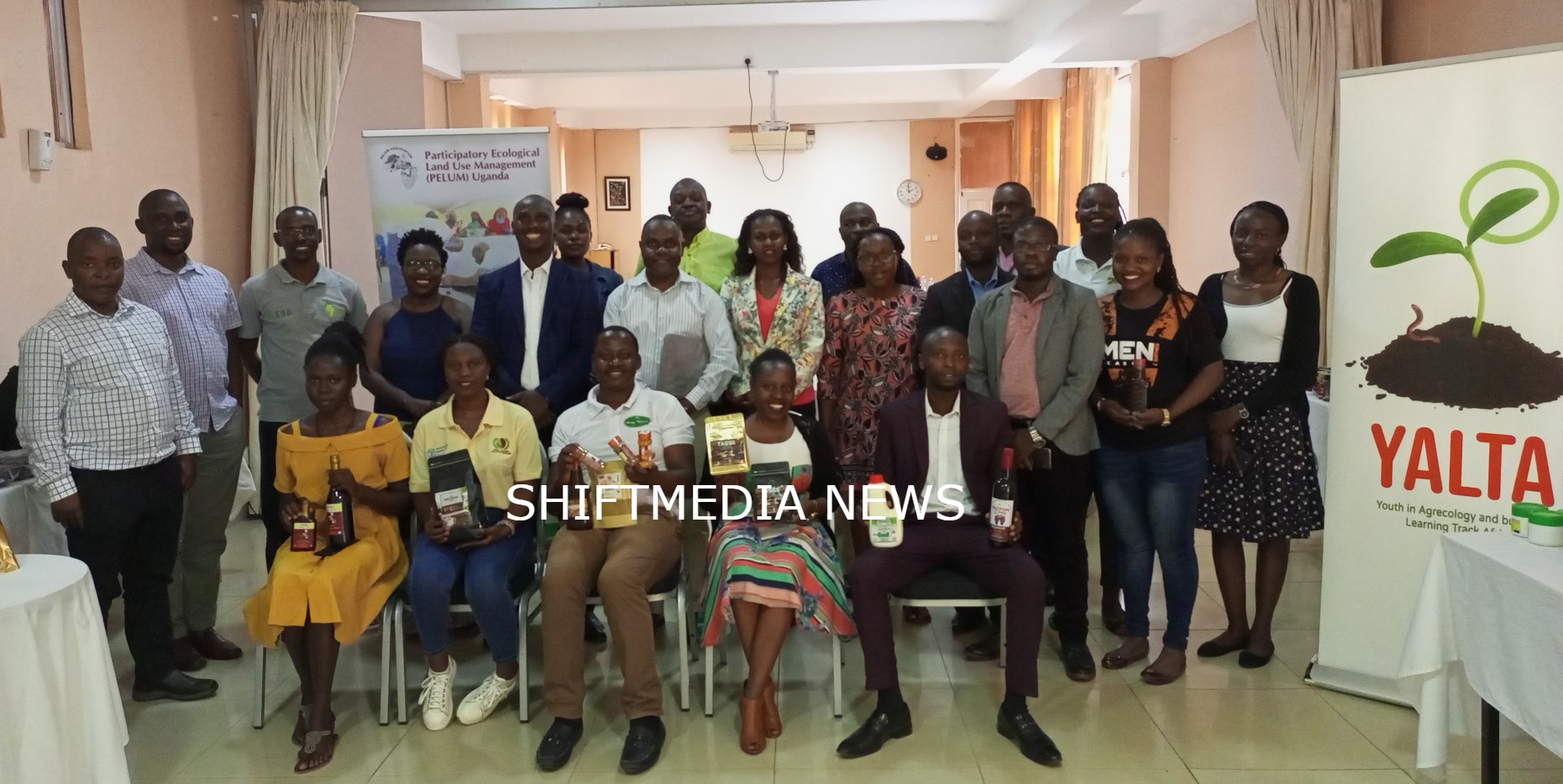TRANSPARENCY: CoST Uganda Commissions 2nd Infrastructure Transparency Index
By PATRICK JARAMOGI
KAMPALA, Uganda [SHIFTMEDIA NEWS] Uganda is finding resistance to compete in the international markets due to high toxicity of its products, experts have revealed.
The worsening situation, unless addressed through increased agroecology will not only lead to losses in terms of revenue from exports, but also lead to deaths due to cancer related illness.
Moses Kisembo the Agri business Solutions expert and founder SHILOH FARMS Uganda Limited
expressed sentiments regarding the increased levels of chemicals used on Uganda’s fruits, vegetables and fresh produce.
“Uganda is the second largest producer of banana’s in the world after India but it doesn’t feature anywhere among the top 50 exporters of banana’s globally,” said Kisembo.

He noted that research indicates that 90% of the vegetables grown in Uganda has high levels of chemicals not suitable for human consumption.
He was speaking at the Participatory Ecological Land Use Management (PELUM) Uganda organized dialogue on agroecology.
Dubbed the: “Deep Dive on; What kind of market-based solutions can support youth led Agroecology enterprises to grow at scale? The dialogue sought to address market challenge issues affecting Uganda’s produce.
Global data reveals otherwise
When we went to ascertain Kisembo’s claims regarding Uganda’s banana statistics, we unearthed the India tops the pack in banana production with a record of 31.5 million tons as per 2020 statistics provided by Knoema.com.
The other leading in production are China |(11.9m), Indonesia (7.2m), Brazil (6.8m) and Ecuador (6.5m) that produce banana’s accounting for 53.47% of the world production.
But according to Atlasbig.com Uganda is ranked no.30 among the leading producers of bananas in the world despite having in growing in over 130,000 acreage of land.
According to Fresh Delmonte Producing Company, Four of the top five exporters of bananas in the world in 2020 were Latin American countries: Ecuador, Costa Rica, Colombia and Guatemala.
Kisembo urged the scores of youth who have just completed mentorship in agroecology through the support of Youth Track and Youth in Agroecology & Business Learning Track Africa (YALTA) Project to practice what he termed as the “magic bullet’.
“The three pillars of successful market based solutions include: consistency, uniformity (in terms of quality) and large volume production, advised Kisembo.
He urged the agroecologists to specialize, look for what the market demands, and identify the competitors.
“What is dominating our Ugandan market today in the pretext of organic foods are highly toxic fruits, vegetables, artificial eggs, molasses mixed with sugar being sold as organic honey to unsuspecting consumers by ruthless and hazardous competitors,” said Kisembo.
He warned that unless Ugandan farmers styled up, they risk losing out to competitors from foreign countries who have penetrated the market.
Government official speaks out
A senior government official from the Ministry of Agriculture, Animal Industry and Fisheries (MAAIF) re-echoed similar sentiments.
Sunday Bob George a senior agriculture officer in charge of food security at MAAIF warned that what Ugandans are consuming today is a time bomb waiting to explode.
“We are consuming a lot of chemicals in the salads, cabbages, tomatoes that we eat. The solution to this is agroecology,” said Bob Sunday.
He noted that the continued use of heavy pesticide on fruits and vegetables by farmers is leaving behind heavy residues that is slowly poisoning consumers.

“We have always advised farmers that spray your vegetables or fruits at least 5-7 days before you harvest. But one sprays in the morning, harvests and brings to the market.” “Hoteliers buy and cook and serve to consumers fresh chemicals. We should expect a bomb blast in times of human deaths due to cancer,” he warned at the meeting held at Eureka Hotel in Kampala on Friday.
“Food is never food unless it is safe,” said Bob Sunday.
PELUM solutions
Participatory Ecological Land Use Management Uganda (PELUM) Uganda officials observed that it had taken the mandate to ensure that toxic foods are addressed using agroecology technics.
Josephine Akiya Luyimbazi, the PELUM Uganda Country Coordinator noted that since majority of the population in Africa in general and Uganda in particular are youths, the agroecology skills were designed to keep the youths engaged in gainful agriculture.
“The main challenge they have been tasking us to address is the issue of markets for what they have produced,” said Akiya.

PHOTO/SHIFTMEDIA
She said that as YALTA and PELUM, there main focus was to address the SDGs (Sustainable Development Goals) by empowering the ‘jobless’ youths.
Richard Mugisha the Regional Coordinator Youth Track and Youth in Agroecology & Business Learning Africa (YALTA) Country Project Manager Uganda said hundreds of youths have received skills on agroecology.
“We have had trainings, capacity building and knowledge transfers for these youths who are now adding value to what they produce,” said Mugisha.









One Comment
[…] READ: https://www.shiftmedianews.com/marketing-ugandan-agroecologists-get-tips-on-how-to-attract-global-ma… […]